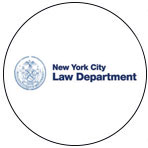
My journey to the law, on paper, was pretty straightforward. School, high school, undergraduate degree, and then straight into law school. But my hand was forced, slightly, towards the legal profession.
My real interest in school, even through undergraduate study, was in science. But I have muscular dystrophy – I was diagnosed when I was around three or four, and it’s a progressive disability, so I knew from an early age that it would worsen as I got older. Law was a very good choice for me, because the only thing required to practice law was a mind and a mouth. Muscular dystrophy does not attack those, so it was something that I felt I could actually have a long career in – and it was a laudable profession to enter.
In some ways, I think that having muscular dystrophy taught me to be an advocate from a young age – to stand up for myself and try to speak and educate people. I also think that growing up with a disability made me a little bit more patient, and it definitely made me a better listener. Maybe the quick answer isn’t always the right answer. It never hurts to listen, hear something out, and do a little bit more research, to try and think, engage or get creative on a solution.
With disability, there are challenges in all aspects of your life. My wheelchair comes with me, so architectural barriers are just everywhere. There are issues in housing, transportation, education, and places of public accommodation, like stores and restaurants. I have witnessed great strides and many improvements in accessibility, but there’s still a long way to go.
However, more problematic than architectural issues are the attitudinal barriers that still haven’t fully been breached. I think a lot of it has to do with the fact that, historically, people with disabilities have had the lowest representation in all aspects of life. Just me being in a room at a closing or in court, sitting across a table from an adversary or discussing things with clients – the importance of that is immeasurable. The best way to learn is by observing, and the best way for that is to have people with disabilities more visible in every facet of life.
Traditionally, a lot of people with disabilities have been employed in disability-related fields. That’s great, and it’s important, but that’s not the be-all and end-all of life experience for people. I think that the more you see individuals with disabilities in regular roles, like in the law department doing real estate work, the better. Frequently I’m the first person that non-disabled people have a professional experience with, and that takeaway is enormous, because these people go back to their firms, go back to their lives in business, and maybe there’s a conversation at the dinner table, or maybe their kids hear something about it. It’s not a formal type of experience where somebody takes a class, or a piece of legislation is enacted – it’s more real.
Disability runs the spectrum; there are lots of people with either invisible or less visible, not-so-obvious disabilities. But I haven’t had somebody else with a visible disability sitting on the opposite side of a conference room table from me, or appearing in court on the other side of a case. I’ve encountered many other diverse attorneys professionally, but I haven’t had the experience of having an attorney with a visible disability as an adversary. It would be odd for almost any other diverse attorney to have an experience where they have never encountered a similarly diverse attorney (as an adversary) in their professional lives.
In terms of the New York City Law Department, there are several other attorneys with disabilities, and frequently what happens is an introduction is made with newer attorneys with disabilities, even if it’s just a summer intern. I might be able to provide some advice to newer attorneys starting out, or somebody who might be thinking of the Law Department, and it’s always beneficial to have someone else who’s been through something similar to talk to. There are some unique challenges and issues that we face where the only other person who might be able to fully understand, or think of solutions, or just be a friendly ear, would be someone else who’s been through it too.
Several months ago, I was one of the presenters and planners for the first continuing legal education course given by the Law Department for City attorneys on disability rights. That was really a great thing to be involved with and it was also a real honor to be asked.
I serve on the Law Department’s Committee on Diversity Recruitment and Retention. I was the first attorney with a disability to serve on that committee. Through that committee, we became a signatory to the American Bar Association’s Disability Diversity in the Legal Profession Pledge for Change. The pledge recognizes that disability diversity is in the best interests of the legal profession, our clients, and our firms. Attorneys with disabilities are important constituents of legal practice, and you should take steps to be more inclusive, while also giving more recognition to these types of issues.
I was the chair of the disability mentoring day program that we run, where high school and college-age students with disabilities come here to the Law Department. They sit in lectures from attorneys who explain what we do, give them tours and that sort of thing. It’s to keep the interest of those students who may not necessarily think that law is a possibility for them, and explain to them it is not worth closing themselves off from work. It was really a wonderful program to be involved in.
Our people are really dedicated to making the Law Department and the practice of law in general more inclusive through training, hosting lectures where people from different diverse backgrounds come here, and hosting receptions welcoming new summer interns or new attorneys into the Law Department, where we can highlight that diversity is important. We represent the people of the city of New York in a way; New York City is one of the most diverse cities anywhere, the Law Department is one of the most diverse law offices anywhere, and it’s both an important and necessary thing for every law office and every employer to represent the communities that they work in.
Personally, I’ve been involved with several disability rights organizations, and one of them is Brooklyn Center for Independence of the Disabled (BCID). It’s in the living sector and its goals are to provide information, assistance and counseling for people with disabilities to navigate the bureaucracy of programs that might enable them to live and work, through advocacy; whether it’s going to local businesses and educating them in making their organization more wheelchair-friendly – for example, by installing ramps or training staff – or providing guidance to students who might be transitioning from high school or college and preparing them for career decisions. I’m vice president to the board of directors.
I’m also involved with an organization called NMD United, and that organization is founded by professional people with various forms of muscular dystrophy to assist fellow people with the condition, who can offer advice on aspects of living with a neuromuscular disability. That could be by finding personal attendants, discussing issues with housing, access or benefits, and we’re also involved in providing microgrants to help with certain disability-related expenses that might not necessarily be covered by insurance or other programs. Even for something simple like wheelchair repair, there might be bureaucratic hoops to jump through with insurers to get coverage. But if your wheelchair breaks, lots of people end up trapped at home, or even trapped in bed, just because of a relatively small repair.
If you have an attorney with a disability, or even a member of support staff with a disability, engage with them; ask what works for them, and for their advice on issues. There’s a wealth of knowledge on problems that could be tapped into. And, engage the community: invite schools over and have open house – like our disability mentoring day, or ‘bring your children to work day’. Little things like that are really important, because you want to teach people from a young age that there are options and choices – that inclusion works.
Legislation is wonderful, and regulation is wonderful, but you also need the community to really embrace issues and to be accommodating. Changing an attitudinal barrier costs nothing. If you’re going to put together training programs, have one (or many) that can cover multiple facets of inclusion. Be inclusive in training: recognize there are issues that need to be addressed and the best way of doing it is by encouraging further dialogue, and engaging with those who know best in order to try and address those issues.


